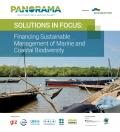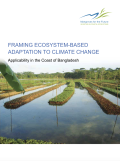This paper sheds light on remaining controversies about whether and how to implement environmental accounting by means of nine country case studies: Norway, The Netherlands, Sweden, France, Canada, The Philippines, Namibia, Germany, and the United States.
The case studies ask a series of questions about each country, including:
- What account has it built, using which methods?
- Which institution has built the accounts?
- How has the accounting work been funded?
- How is the data being used, and by whom?
- Does the choice of topics, methods, or institutional context have a bearing on the effectiveness with which the accounts are used?
Environmental accounts are being implemented with an array of goals in mind. One of the most ambitious is that they will help steer the economy onto a sustainable path or provide macroeconomic indicators that reflect the role of the environment in the economy. The cases suggest that this goal is not being achieved, largely because the accounts include neither meaningful adjusted macroeconomic indicators nor the value of non-marketed environmental goods and services. A more modest goal is that the accounts and the data underlying them will make it easier to analyze sectoral and macroeconomic issues, so as to design policies that reflect a more comprehensive understanding of the relationship between the economy and the environment. This does seem to be occurring in the case study countries and is the major use of the accounting data.
A third goal for the accounts is to enable environmental advocacy groups to use them to help them make a case for increased environmental protection. However, the cases suggest that advocacy groups are infrequent users of the accounts or the data underlying them. This may be because the accounts do not include the macroeconomic indicators or valuation data that would help identify tradeoffs between economic growth and the environment, or because relatively few advocacy groups are engaged in the analytical work to which the accounting data are best suited.
A fourth aim for the accounts is that the process of building them will serve as a catalyst for organizing data in new ways, reconciling discrepancies in underlying data, and investing in new data collection. A number of countries found that the accounting process helped systematize existing data. By and large, use of the accounts did not increase willingness to invest in primary data collection, however, and most accounts rely on data collected by other government agencies for other purposes.




